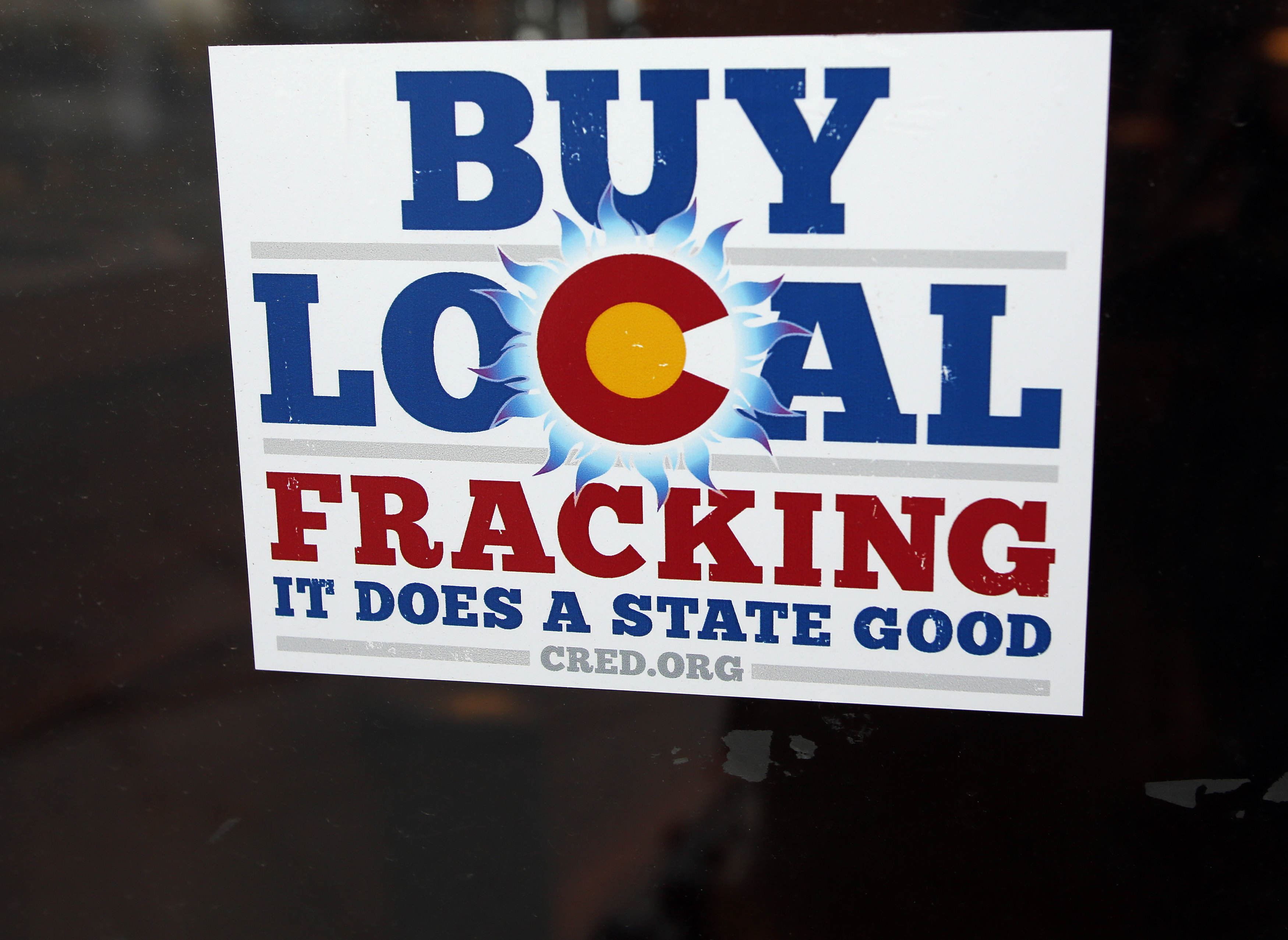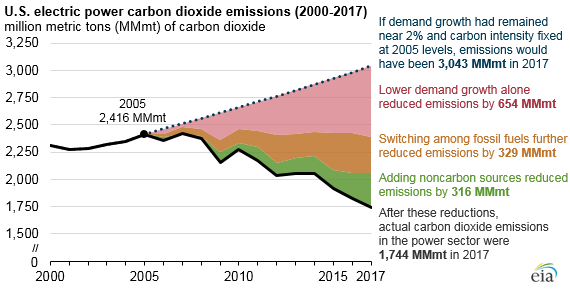- Al Gore endorsed a Colorado ballot measure that could effectively ban fracking in the state.
- Energy experts say fracking is a major reason U.S. carbon dioxide emissions are falling.
- Colorado has “the sixth largest natural gas reserves,” according to energy experts.
Former Vice President Al Gore waded into a fight over oil and gas drilling in Colorado, urging residents to support a ballot initiative that critics say would effectively ban hydraulic fracturing across the state.
Gore, an ardent global warming activist, is effectively calling on Colorado voters to ban fracking for a fuel, natural gas, responsible for the lion’s share of reductions in U.S. carbon dioxide emissions. Most scientists blame carbon dioxide for recent global warming.
“I urge Colorado voters to vote #YesOn112 to protect homes, schools, playgrounds and other vulnerable areas from fracking,” Gore tweeted Monday. “As oil & gas spends millions to fight this, your citizen-led campaign can protect Coloradans and make climate justice history!”
I urge Colorado voters to vote #YesOn112 to protect homes, schools, playgrounds and other vulnerable areas from fracking. As oil & gas spends millions to fight this, your citizen-led campaign can protect Coloradans and make climate justice history! https://t.co/UdXpnPy3z3
— Al Gore (@algore) October 29, 2018
Proposition 112 requires a 2,500-foot buffer zone between new hydraulic fracturing, or fracking, operations and occupied buildings, waterways and other “vulnerable” areas. (RELATED: UN Climate Summit Costs Rise With CO2 Emissions, Now Exceed $150 Million, Economist Says)
If adopted, fracking supporters argue the ballot measure would effectively ban oil and natural gas development in Colorado — a claim verified by fact-checkers at CBS News Denver.
Indeed, the Colorado Oil and Gas Commission found that implementing the 2,500-foot buffer for oil and gas operations would ban drilling on about 85 percent of non-federal lands in the state. That’s troubling to some Democrats in the oil and gas-reliant state.
For example, the Boulder County Democratic Party supports Proposition 112, but former Obama administration Interior Secretary Ken Salazar opposes it.
Former Colorado Gov. Bill Ritter, a Democrat, called Prop 112 a “keep it in the ground effort” perpetrated by activists who “want to see oil and gas development seriously curtailed, and perhaps even halted, in Colorado.”

A sign supporting fracking on the doorway at Mama’s Restaurant in Parachute, Colorado, December 10, 2014. The economy of Parachute, with a current population of approximately 1000 people, was devastated when thousands of workers lost their jobs on “Black Sunday” in 1982, after Exxon terminated the Colony Shale Oil Project. The current rise of hydraulic fracking in natural gas retrieval has given a cautious hope to the town’s inhabitants, who know that market demand brings both boom and bust. Picture taken December 10, 2014. REUTERS/Jim Urquhart.
Colorado Rising, the group behind the ballot initiative, claims the current 1,000-foot buffer zone needs to be more than doubled to 2,500 feet to protect public health. Gore’s group, the Climate Reality Project, is one of several dozen groups backing the proposition.
“A growing body of public health research shows that living too close to fracking operations, especially less than 2,500 feet, is a serious risk to health and safety,” Colorado Rising says on its website.
However, Gore’s support for the de facto fracking ban would restrict production of the very fuel experts say is largely responsible for the decline in U.S. energy sector greenhouse gas emissions.

Source: U.S. Energy Information Administration
A U.S. Energy Information Administration (EIA) report released Monday says fuel switching from coal to natural gas lowered U.S. emissions 329 million metric tons since 2005 — the largest reduction for any single fuel source.
Fracking led to a boom in natural gas production when states, like Colorado, created the conditions that allowed utilities to switch from coal to less carbon dioxide-intensive natural gas. Colorado has “the sixth largest natural gas reserves, and 11 of the nation’s 100 biggest natural gas fields are located in the state,” according to EIA.
EIA noted that “ample supplies of lower-priced natural gas and the relative ease of adding natural gas-fired capacity have allowed it to pick up share in electric power generation in many markets.”
In 2017, EIA reported that natural gas was responsible for more emissions cuts than all renewable energy sources, like solar and wind, combined.
Follow Michael on Facebook and Twitter
All content created by the Daily Caller News Foundation, an independent and nonpartisan newswire service, is available without charge to any legitimate news publisher that can provide a large audience. All republished articles must include our logo, our reporter’s byline and their DCNF affiliation. For any questions about our guidelines or partnering with us, please contact licensing@dailycallernewsfoundation.org.


